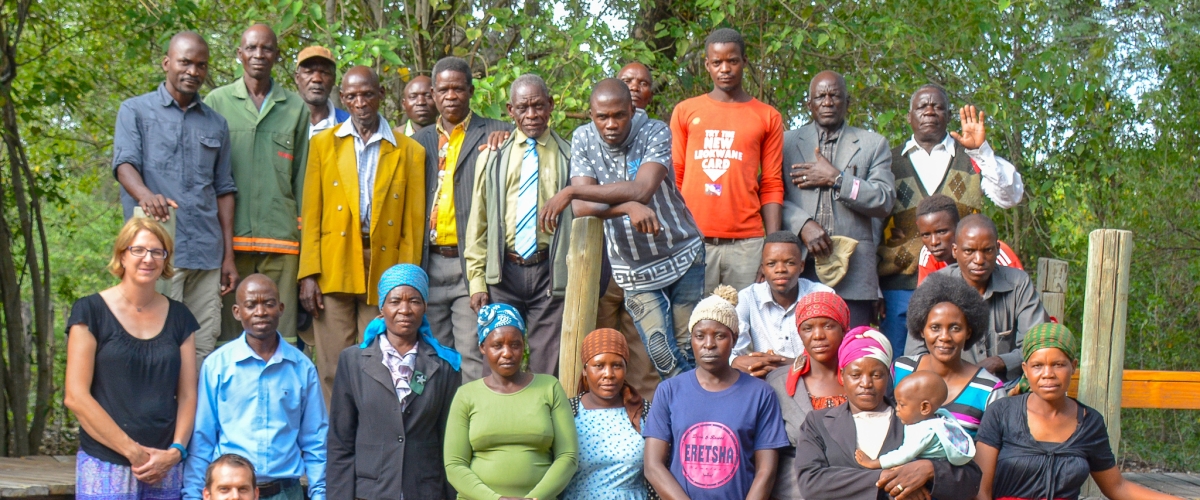
Participants shared through participatory learning assessments some of the changes that they have observed over the past years such as reduced and erratic rain patterns, high temperatures, and droughts among other issues. Village Chief, Selemire, Kapomboro expressed his concerns about the lack of rains. ” I fear that the cattle in my village will not survive because of this drought that we are currently experiencing in Habu Village. It has not rained for over four weeks, and it is so worrisome and hot for the cattle”.
This was shared at the inception workshop of the new Herding for Health (H4H) project in two of its intervention areas (Habu & Eretsha villages) in Northern Botswana. The objective of the inception workshops was to introduce the new project to communities and to learn from them about their perception of risks associated with climate change to jointly come up with lasting solutions.
The H4H approach supports livestock-owning communities to manage their rangelands, water sources, and livestock in ways that reduce climate risks and increase carbon sequestration while also addressing threats such as predation, disease transmission, land degradation, and trade barriers. The H4H project is implemented in Botswana, Lesotho, South Africa, Mozambique, Zimbabwe, and Zambia.
During the workshop, the participants shared activities they wish to undertake in 2019 including workshops, climate change risk analysis and adaptation planning, exchange visits, feasibility studies and investment proposal writing that will address the challenges being experienced by the community members.
Speaking at the workshop, Director of Herding for Health (H4H) Dr. Jacques Van Rooyen indicated that he was looking forward to learning from the community how best they will implement the project. He further explained how H4H has empowered other communities through professional herding and equipping herders with the skills to manage their rangelands for greater socio-economic and environmental benefits. The H4H ensures that herders are recruited and trained within communities to address multiple risks and to set farmers up to benefit from new and existing trade opportunities. By implementing planned grazing and basic rangeland restoration practices through sustainable livestock management, farmers improve their rangelands and soil which provides a buffer against climate change-related impacts.
The Centre for Coordination of Agricultural Research & Development for Southern Africa, CCARDESA through the Southern African Development Community (SADC) / German Development Cooperation (GIZ) Adaptation to Climate Change in Rural Areas in Southern Africa (ACCRA) Programme, funded by the Federal German Ministry for Economic Cooperation and Development (BMZ), is supporting the Herding for Health (H4H) project. H4H is implemented by the Peace Parks Foundation in partnership with Conservation International. ACCRA and H4H aim to boost the capacities of the SADC member states to integrate climate change aspects into agricultural programmes and investments.





